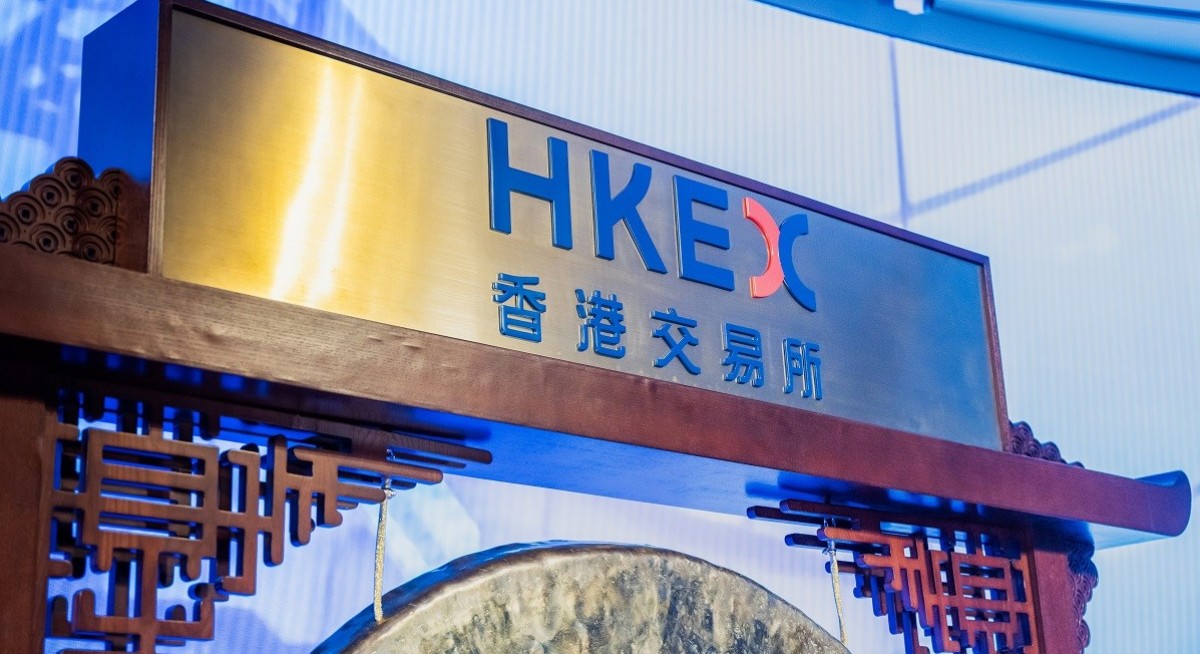The changes are designed to encourage more companies — particularly those whose shares already trade in mainland China — to list in Hong Kong, and to set aside enough shares for large institutional investors. The idea is that the moves will help the city’s listings markets, which is forecast to double to more than US$22 billion this year, prolong the rally and solidify its place as Asia’s premier financial hub.
Hong Kong Listings Are Seen Rising to US$22 Billion in 2025
“This contributes to a healthier IPO market by promoting price stability and more accurate valuations — ultimately benefiting both the IPO landscape and the broader Hong Kong stock market,” said Kenny Ng, a strategist at China Everbright Securities International. “While retail investors might appear to lose out due to reduced allotments, the reform also protects them from volatile pricing that can arise from excessive retail demand.”
See also: Alibaba leads tech slide after Pentagon briefly shows blacklist
They also represent Hong Kong’s latest efforts to bolster the city’s standing as a listing destination. Prior to last week, it allowed some companies to file confidentially, and for big firms already listed on the mainland Chinese bourses, Hong Kong promised to speed up the process for listing applications to 30 days.
That may not be the end of it. The exchange is conducting a two-month public consultation on whether to lower minimum float requirements for China-traded issuers further to 5% after they are listed. That’s after announcing on Friday that their minimum percentage of shares required to be listed when going public in Hong Kong will drop to 10% from 15%.
The key to making this work is to limit these benefits to large companies, according to Vincent Chan, a China strategist at Aletheia Capital.
See also: China summons Alibaba, other platforms over pricing practice
Low float requirements “could pose a problem for smaller firms, as liquidity in the Hong Kong market could become so low that it becomes a concern,” Chan said. “If a company is large enough, the float requirement doesn’t matter as much.”
Retail Fever
The other big change in the exchange’s rules involved Hong Kong’s unusual system to ensure retail investors don’t lose out on highly sought-after IPOs. In such deals, if demand from retail investors is high enough, it triggers a so-called clawback mechanism that increases the number of shares available to them by redistributing stock that had been allocated to institutional investors.
The exchange lowered the maximum proportion of shares that can be allocated to retail investors to 35%, down from 50% currently. For retail investors, it could have been worse as the exchange had initially proposed to cut it to 20%.
The change aims to minimize the risk of initial public offerings being overpriced during bookbuilding, which can result in a greater risk of a price slump after listing, the exchange said in a December paper. The retail frenzy around the likes of Mixue Group’s Hong Kong debut was so intense that the securities regulator put a cap on margin loans and launched a review of the brokers that were most active in the deals.
Louis Wong, director of Phillip Securities (HK) Ltd, a brokerage popular among retail investors that submitted comments with the exchange, said his firm’s trading commissions will likely take a hit from lower allocations to retail investors. But the exchange has to strike a balance between the interests of retail and institutional investors, he said.
New listings have fueled Hong Kong’s revival this year, driven by a slew of Chinese companies adding an extra listing in the city, including battery-giant Contemporary Amperex Technology Co’s blockbuster deal — the biggest of its kind in 2025 globally. That helped the city reclaim its standing as the world’s second-largest market for share sales for the first time since 2012, reversing a yearslong slump following the Covid-19 pandemic.
The trick now is to extend the streak.
“They need to have a tailor-made approach to make sure that Hong Kong remains attractive,” said Frank Bi, head of the Asia corporate-transactions practice at the law firm Ashurst, referring to the new float requirements. “Lots of certain investors are still sort of in a watch-and-see mode to see whether they want to deploy their money back to Asia.”




